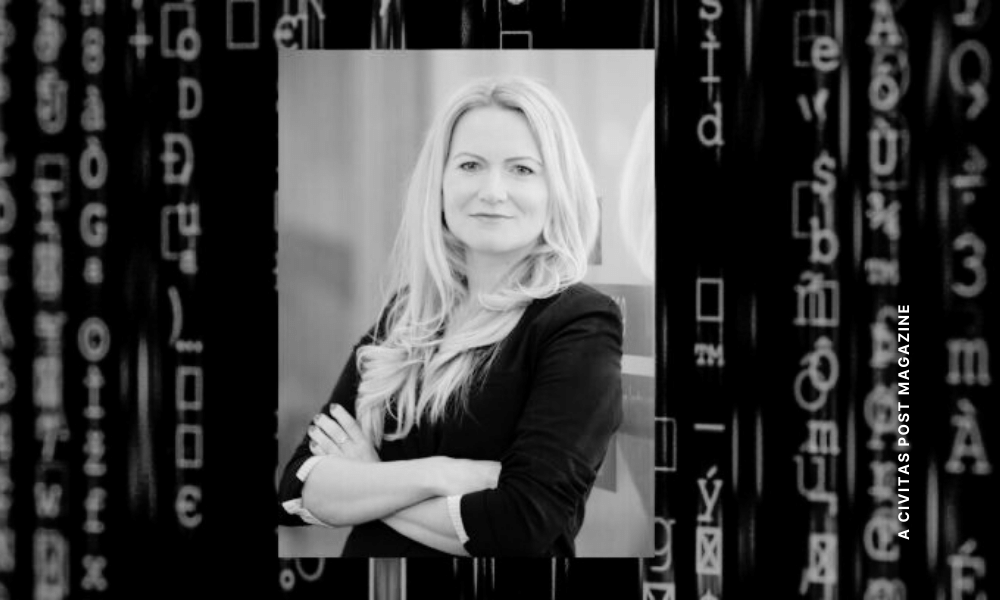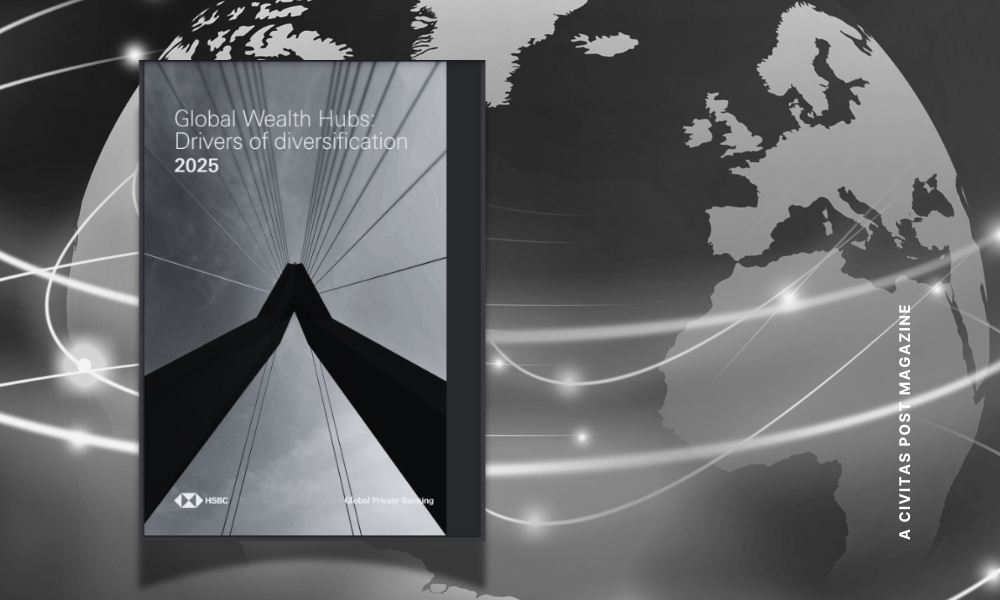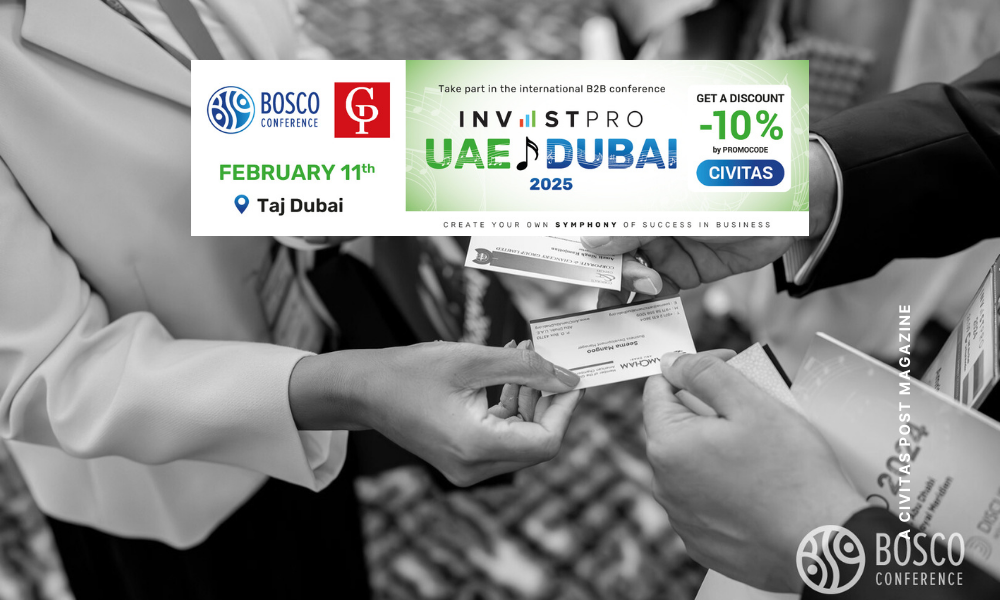Dedicated to promoting the importance of due diligence in the investment migration sector, we discussed risk governance and future regulatory developments that would impact investors, regulators, and agents.
CIVITAS POST undertakes interviews with Leading Women in the Investment Migration industry which are published and distributed to industry players from Bogota to Bangkok.
On Leading Women in Investment Migration today we are featuring Sylwia Wolos a qualified business intelligence expert with over a decade of hands-on experience managing regional Enhanced Due Diligence service research teams. She has professional knowledge of the Anti-Bribery and Corruption (ABC) and Anti-Money Laundering (AML) regulation, with specific focus on Ultimate Beneficial Ownership issues (UBO), confirmed with Certified Anti-Money Laundering Specialist (CAMS, 2012) and Certificate in Anti-Bribery and Corruption Studies (CABCS, 2017) diplomas. Sylwia is a member of IMC (Investment Migration Council), holds IMC Certification and is a renowned speaker and expert on due diligence in the investment migration industry.
Â
Due Diligence in the Investment Migration Industry
Ms. Wolos is a renowned risk management and due diligence expert, advocating for the importance of Enhanced Due Diligence (EDD) in the investment migration sector. An expert on best practices in the citizenship/residency by investment industry, Ms. Wolos has advised various stakeholders including agents, law firms and governments.
CP:Â Welcome, Sylwia! We are pleased to have you on our Special Feature for Leading Women in Investment Migration. As a Risk Solutions Consultant â Enhanced Due Diligence and an expert in due diligence, could you provide us with a brief overview on Refinitiv?
SW: Thank you for this wonderful opportunity â itâs such a great initiative and Iâve thoroughly enjoyed reading previous interviews in the Leading Women in Investment Migration series.
Refinitiv is a global provider of financial market data and infrastructure, serving over 40,000 institutions in approximately 190 countries. The company was founded in 2018, based on Thomson Reuters Risk and Financial business.
I work for Refinitivâs Risk business, which is a global leader in providing data needed to prevent financial crime through Anti-Money Laundering (AML), Counter-Terrorism Financing (CTF) and Anti-Bribery and Corruption (ABC) Compliance programmes.
Many of our customers will know Refinitiv through our risk intelligence database called World-Check, which has been a go-to solution in the risk and compliance services. Refinitiv has also been assisting governments with Residency and Citizenship by Investment (RCBI) programmes for nearly a decade now with enhanced background checks of the programsâ applicants.
In the context of Investment Migration specifically, could you tell us about due diligence and the important role it plays in the industry currently?
Due diligence is a fundamental part of risk management programmes operated by Citizenship and Residency by Investment Units to ensure the integrity of the programmes, minimize financial crime risk exposure and support rightful applicants to complete the process. Some of the programmes have had very strong risk mitigation procedures in place, including enhanced levels of due diligence checks.
However, where there are low levels of scrutiny applied to candidates and their sources of funds, there is a very real risk that they are open to potential misuse by bad actors.
The lack of information about risk governance in place also leaves the entire sector open to criticism by multilateral bodies such as the European Commission and international non-governmental organizations (NGOs) over the perceived deficiency in due diligence and controls around the applicant vetting process.
Recently, the appreciation of risk management and due diligence within the investment migration (IM) sector has increased, and Know-Your-Customer (KYC) checks in agent-led due diligence processes have become more widely applied.
This has demonstrated important progress towards better governance and a lower financial crime risk appetite.
Youâve been involved in the elaboration of important reports and recommendations highlighting benchmarks for the Investment Migration industry in terms of due diligence standards. What practical outcome did the Working Group (IMC, BDO USA, BDO, Exiger, Refinitiv) on this seek to achieve?
 The Working Group organised by IMC included risk management and due diligence experts with a combined wealth of experience from financial, corporate, and public sectors.
The group gave us an opportunity to recommend appropriate due diligence standards and increase the awareness of the current gap in various programsâ due diligence levels and also to provide guidance on best practices.
It was also a channel to share our knowledge, to cooperate as professionals beyond specific brand names and build a strong and independent recommendation and reference material for the IM sector, including its external observers and critics.
The Parliamentary Assembly of the Council of Europe recently issued a draft resolution highlighting that investment migration programmes of member States should respect the standards set by the Council of Europe especially during the pandemic. Could you elaborate on this development and what impact do you expect it will have on the industry?
 The draft resolution, in a nutshell, calls for preventing any illegalities within the sector.
This document still needs to be debated, possibly amended and eventually adopted by the Assembly towards the end of this year.
The resolutionâs key points are aligned with previously produced documents at EU institutional levels, which highlight the importance of financial crime prevention and best governance, including transparency within the RCBI programmes.
The European Unionâs Fifth Anti-Money Laundering Directive has already added third country nationals who apply for residence rights or citizenship in the Member States through investment programmes to the definition of high-risk customers.
Because of this inclusion, all obligated institutions and program administrators must apply enhanced customer due diligence measures to their customers who are IM applicants, if they want to remain compliant with current anti-money laundering (AML) regulations in Europe.
Read more: The Business of Assisting Money Laundering: “Network Firms” and Audit Independence
Â
Global Investment Migration Trends
Which programmes do you feel have the most robust due diligence framework?
What best practices do you feel should be implemented across the board for all investment migration programs.?
Itâs difficult to name any specific programmes, as some of them do not share details of their due diligence framework with external stakeholders and Iâd like to maintain confidentiality for those programmes I have been working with. That said, the rule of thumb would be that the programmes that embrace transparency in general tend to have stricter due diligence procedures in place.
Through the DD working group, we have published very practical and detailed guidelines for both agent-led due diligence and government-led due diligence processes. The group made it very easy with ready-made recommendations, for example five detailed steps and applicable tools for the process.
- Know Your Customer
- Legal Clearance
- Accuracy and Completeness
- Coherence
- Risk Assessment
Everyone can look up these recommendations, even those advising their customers, so they get a better understanding of what level of scrutiny their clients can expect through the process, through all programmes with the robust level of checks.
The public has been demanding greater transparency on every level from governments and institutions, a more prevalent trend during this pandemic. Corporate registers have increasingly shifted to public digital registers in many jurisdictions and there is increasing pressure to have public Ultimate Beneficial Owner registers.
Should this approach also apply across the board for citizenship by investment / golden visa programmes where Investors are publicly listed?
Corporate transparency is the key ingredient in the fight against financial crime and opaque corporate structures, such as shell corporations, whilst these complex legal entities can facilitate legitimate business, they are frequently linked to large-scale criminal activity including tax evasion, fraud, money laundering, terrorism financing and sanctions violations.
In the context of investment migration, because large financial transactions are always involved, civil society and international organisations have been advocating for increased transparency.
More transparency in how the programmes is managed, what level of applicant background checks are conducted and what the review and decision-making process is would contribute to a better understanding of the programmes by external observers and lead to a fact-based debate.
Citizenship by Investment (CBI) and Residency by Investment (RBI) programmes are significant FDI sources for many host nationsâ economies.,Motivated by the economic turmoil that covid-19 has brought upon the global economy some Caribbean nations are offering reductions on their citizenship programmes and other incentives for foreign investors.
Do you feel that in efforts to attract foreign investors, due diligence monitoring during this pandemic will falter?
I remain optimistic and I donât think the level of applicant vetting will be lowered in the current climate, even when the application fees are reduced.
I believe the assessment process is too important and Iâm confident that that the RCBI Units that have already embraced risk management as the key strategy for increased programme integrity will not cut corners.
Itâs also possible we may see more responsibility and pressure placed on agents to ensure the submitted applications meet an appropriate level of quality â possibly through licensing of the agents, as is already the case in some countries.
This in turn can lead to overall positive change, providing a more level playing field to the agents who can vary greatly in size and capabilities, but also simply reducing the opportunity for bad players to fall through the cracks.
Â
Leading Women in Investment Migration
Could you walk us through your career journey thus far? What aspects of your journey have you found most rewarding?
My career in EDD started just after graduating from university when I became a research analyst. It was rather brief as I was promoted very quickly to a manager role and instead of doing research myself, I was then tasked with developing and building a large research operation centre in Europe.
That first job, however, has given me a unique basis for growth and career development in the sector, through a deep level of understanding of the research process and investigation methodology.
I have worn different hats since then, but regardless of my job title, I have always found three aspects the most rewarding:
- Real life situations when the research helps our clients identify major potential trouble and avoid it;
- Seeing the growth of so many of my team â from fresh grads I have hired to successful professionals, experts in DD, wonderful people managers and even business owners, and;
- Making a small contribution and some impact to the immense fight against financial crime â including through some of the thought leadership and educational activities I have had the privilege to join.
How have you coped during the lockdown and quarantine periods. How have you balanced work commitments and the added pressures from these new changes to our ânormal way of lifeâ?
Early on Refinitiv decided to move the entire company to a virtual office environment before lockdowns were mandated by many governments. That put a lot of peopleâs minds at rest when it came to personal safety.
Weâre also fortunate to have robust and flexible technology âwe upgraded our suite of collaboration and communication tools recently, meaning we have access to teamwork applications. So many of our customer-facing functions were able to be up and running almost overnight.
On a personal level, juggling family life, home schooling and working from home brought many logistical challenges in the beginning. In the middle of the pandemic, I also relocated to another country, which added a fair amount of stress and logistical headaches!
In all of this however, my familyâs physical and mental health has been the priority and we have all remained well.
 I am very lucky to have a strong personal and professional support from my family, friends and colleagues and this helped me enormously to adapt. I would encourage other women with an interest in geo-politics, economics, and law, to find out about the scale of the problem and capitalize on their passion to do something about it.
That is a lot of changes to juggle at one time!
What career advice would you give to aspiring young women about to start on the career ladder in risk management??
Risk management is fascinating!
Whilst I hope the size of the financial crime problem would have shrunk by the time my daughter comes of age, I would encourage other women with an interest in geo-politics, economics and law, to find out about the scale of the problem and capitalize on their passion to do something about it.
Once you truly appreciate the impact it has on our lives you will never want to stop fighting it- through big or small actions.
I look forward to seeing more women in this sector!
Thank you, Sylwia for your invaluable expertise and insight on all things relating to due diligence, risk management and its undeniable key role in investment migration today and in the future.
Thank you, Sylwia. For questions about matters pertaining to due diligence in the investment migration sector please contact Sylwia on LinkedIN or at Sylwia.wolos@refinitiv.com. For more information, please see Refinitiv.
âWomen are the largest untapped reservoir of talent in the world.â Hillary Clinton










